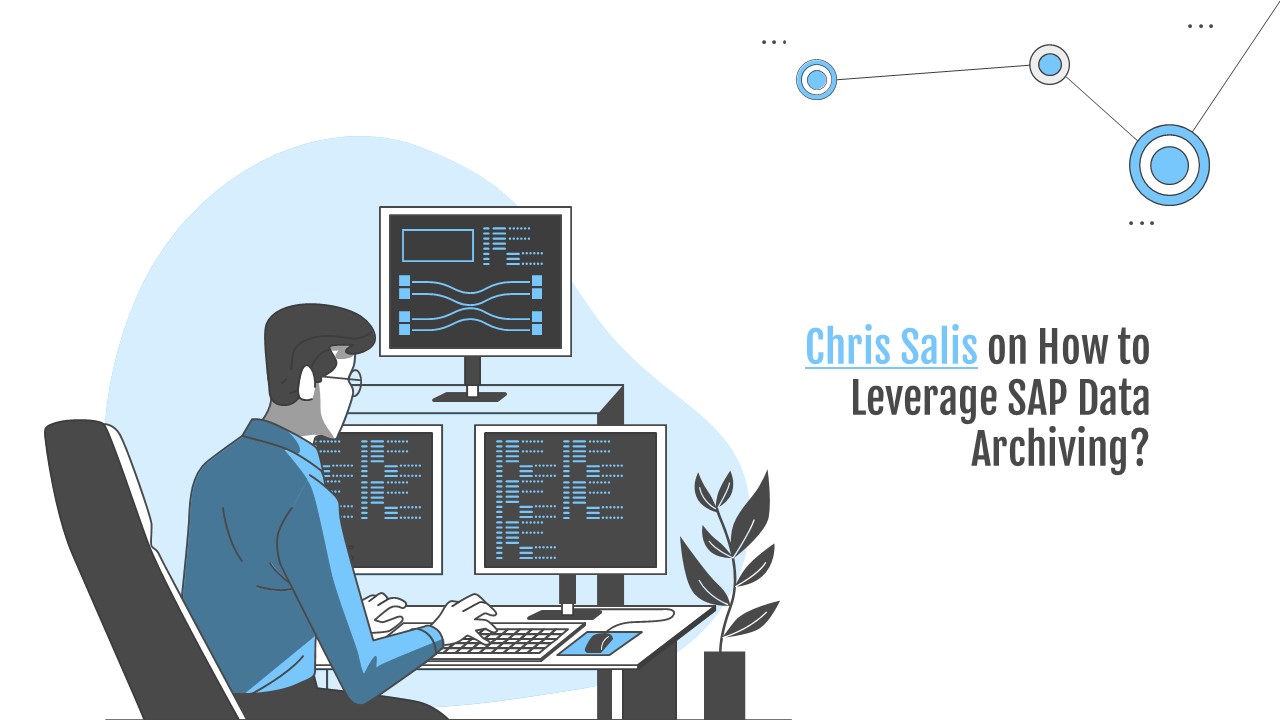Chris Salis on How to Leverage SAP Data Archiving? - PowerPoint PPT Presentation
Title:
Chris Salis on How to Leverage SAP Data Archiving?
Description:
SAP Data Archiving, as elucidated by Chris Salis, an SAP master, is a powerful solution for organizations looking to optimize their data management strategies. – PowerPoint PPT presentation
Number of Views:2
Title: Chris Salis on How to Leverage SAP Data Archiving?
1
Chris Salis on How to Leverage SAP Data Archiving?
2
Chris Salis, an SAP expert who knows a lot about
both SAP and business strategy, gives
organizations great advice on how to use SAP Data
Archiving to make their data management
strategies work better.
3
02
03
04
What's SAP Data Archiving? SAP Data Archiving is
a critical tool in SAP's suite of solutions. It
allows organizations to systematically move data
no longer frequently accessed to a lower-cost
storage solution, making it easier to manage and
maintain the essential data for ongoing
operations.
4
Chris Salis on the Benefits of SAP Data
ArchivingChris Salis highlights the numerous
benefits that organizations can gain from
leveraging SAP Data ArchivingImproved System
PerformanceOne of the primary advantages of data
archiving is improved system performance. By
moving less frequently accessed data to a
separate storage, the core SAP system becomes
more responsive and efficient.
5
- Reduced Database Size
- Over time, an SAP database can grow
significantly, leading to increased costs and
performance issues. Data archiving reduces the
database size, mitigating these challenges. - Cost Savings
- With data archiving, organizations can store
archived data in lower-cost storage solutions.
That not only reduces operational costs but also
keeps the essential data readily available in the
SAP system.
6
- Compliance and Data Retention
- Many industries have strict data retention and
compliance requirements. Data archiving allows
organizations to adhere to these regulations
while maintaining easy access to necessary
information. - Improved Data Quality
- By archiving outdated or redundant data, the
quality of data in the SAP system improves. Users
have access to more relevant and accurate
information.
7
- Leveraging SAP Data Archiving Effectively
- Chris Salis outlines the key steps to leverage
SAP Data Archiving effectively - Assess Data Requirements
- Begin by assessing your organization's data
requirements. Identify which data can be archived
and which must remain accessible in the SAP
system.
8
Define Archiving ObjectivesDefine clear
objectives for data archiving. What are you
trying to achieve? Improved performance, cost
savings, regulatory compliance? Clearly defined
objectives guide the process.Implement Data
Archiving StrategiesDevelop strategies for
implementing data archiving. It includes defining
archiving objects, specifying retention policies,
and establishing access controls.
9
- Train and Educate Users
- Users need to be aware of how data archiving
impacts their work. Training and education ensure
a smooth transition to the new data management
strategy. - Monitor and Optimize
- Continuously monitor the data archiving process
and optimize it as needed. Regular reviews help
ensure that archiving aligns with changing
business requirements.































